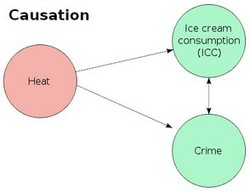Secularization and the decline in religious practice is often blamed for this worrying phenomenon. As an example, an article titled Religion takes a back seat in Western Europe had this to say:
Among the most striking consequences of the decline of religion has been fewer children. The birth rate throughout much of Western Europe has fallen so drastically that the population in many countries is shrinking, indicating that women throughout Europe now routinely use artificial birth control, in defiance of the Roman Catholic Church's teachings.1
Another article titled Faith Equals Fertility made this claim:
If they want to spread their gospel, then, one might half-seriously conclude that atheists and agnostics ought to focus on having more children, to help overcome their demographic disadvantage. Unfortunately for secularists, this may not work even as a joke. Nobody knows exactly why religion and fertility tend to go together. 2
Birth rate statistics in Western Europe don't support the claims made by these articles. They ignore the economic and social factors that influence birth rates and make the mistake of thinking that correlation equals causation.





 Would Gangnam Style Have Gone to Number 1 Under the New Billboard Youtube Formula?on 02/26/2013
Would Gangnam Style Have Gone to Number 1 Under the New Billboard Youtube Formula?on 02/26/2013
 How to Learn the Bengali Languageon 02/10/2013
How to Learn the Bengali Languageon 02/10/2013
 How to Help Your Child Overcome Worry, Anxiety and Fearon 02/10/2013
How to Help Your Child Overcome Worry, Anxiety and Fearon 02/10/2013
 Did Removing Prayer from Public Schools Lead to Moral Decline?on 02/07/2013
Did Removing Prayer from Public Schools Lead to Moral Decline?on 02/07/2013


Comments
Church attendance is included. Even countries with high church attendance have lower birth rates than those with low church attendance.
Look at church attendance and then you will see a correlation.